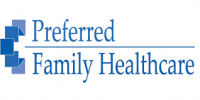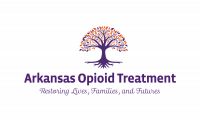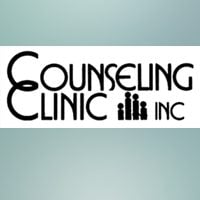Preferred Family Healthcare - Hope
Drug Rehab Center in Hope, Arkansas
Preferred Family Healthcare - Hope in Arkansas offers comprehensive mental health services, including outpatient counseling, inpatient treatment, substance abuse programs, and a special program for opioid addiction that provides medically assisted treatment and recovery services. They provide personalized recovery plans and promote safe management of addiction, with a focus on evidence-based treatment and quality care.
About This Arkansas Facility
Located in Hope, Arkansas, Preferred Family Healthcare - Hope provides a sanctuary for individuals grappling with mental health and substance abuse issues. With its foundation rooted in community service, this facility specializes in outpatient services, offering a path to recovery and wellness through a variety of programs such as individual counseling, group therapy, and comprehensive family support.
- Provides a wide range of behavioral and mental health services focusing on comprehensive recovery.
- Offers specialized programs for opioid addiction, including medically assisted treatment.
- Accredited by the Commission on Accreditation of Rehabilitation Facilities (CARF), ensuring high-quality care.
- Designated a Certified Community Behavioral Health Clinic (CCBHC), reflecting its broad-based approach to client care.
Preferred Family Healthcare - Hope enjoys both CARF accreditation and licensure from the Arkansas Department of Human Services, highlighting its commitment to excellence in healthcare. Their recognition as a CCBHC demonstrates their dedication to evidence-based treatment.
The facility addresses a series of addictions and related issues, with a specific focus on opioid addiction treatment through a variety of methods, including medically assisted treatment. Offering services at various levels from outpatient counseling to inpatient treatment, the team crafts recovery plans tailored to each individual's needs, encompassing detox, relapse prevention, case management, and aftercare planning.
Genders
Ages
Modality
Additional
Accreditations

CARF
The Commission on Accreditation of Rehabilitation Facilities (CARF) is a non-profit organization that specifically accredits rehab organizations. Founded in 1966, CARF's, mission is to help service providers like rehab facilities maintain high standards of care.
Conditions and Issues Treated
Dual Diagnosis refers to someone who is both dealing with addiction and another mental health issue.
There are different kinds of Dual Diagnosis: A person who simultaneously experiences both a mental illness and an addiction disorder. Or, a person who experiences one or more coexisting (simultaneous) mental health conditions in addition to a primary substance use disorder.
Some conditions that commonly co-occur with addiction include:
- Personality Disorders (Borderline, Narcissistic)
- Mood Disorders (Bipolar Disorder, Depression, Anxiety Disorder)
- PTSD (Post Traumatic Stress Disorder), OCD (Obsessive Compulsive Disorder), ADHD (Attention Deficit Hyperactivity Disorder)
- Schizophrenia, Psychosis, Hallucinations, Delusions
Levels of Care Offered at Preferred Family Healthcare - Hope
This center offers a variety of custom treatment tailored to individual recovery. Currently available are Dual-Diagnosis, Intensive Outpatient, Outpatient, with additional therapies available as listed below.
Outpatient addiction treatment is beneficial for people who are able to function well in their day-to-day lives. It is recommended for people who are not yet ready to end their relationships with friends or family members who might be encouraging drug and alcohol use.
Intensive outpatient treatment is beneficial for:
- People who are able to attend treatment more than 3 times per week.
- People who do not meet the criteria for inpatient treatment.
- People who are able to contribute to their own recovery outside of the treatment center.
- People who are motivated towards recovery.
- People who are able to overcome addiction on their own without the need for higher levels of care.
Outpatient treatment programs provide drug and alcohol addiction treatment through individual sessions with a counselor, group therapy, 12-step meetings, and other activities to help individuals gain sober living skills. Most programs are designed for those individuals who have completed a medically supervised detoxification program and provide opportunities for clients to begin the process of early recovery.
Outpatient programs also offer a level of medical support as needed and psychological backing through therapy. Clients are encouraged to live at home, though there may be some flexibility regarding this requirement based on the circumstances and needs of each patient.
Outpatient treatment is perhaps the most common type of dual diagnosis program available. It does not pose a significant financial burden on patients. However, it is essential to note that outpatient treatment does not provide the support and supervision given in residential programs. Some addicts may need this level of support to maintain their sobriety.
Therapies & Programs
Therapy sessions focused on the individual addict can provide much-needed guidance as they work toward overcoming their addiction. These types of sessions typically involve guidance from a therapist, who will help addicts identify and process their feelings and cravings.
During these sessions, addicts may develop plans for coping with the triggers that typically lead to relapse and learn how to avoid those triggers during their recovery process.
The main goal of family therapy for drug addiction is to create an environment where communication can occur without judgment, hostility, or blame that often occurs within a family.
Family therapy is a type of group problem-solving that aims to improve communication and relationships between the patient, their family, and sometimes friends. The therapist is with the family as they learn to communicate with each other differently, especially with the addict when s/he is using.
The family can learn to reduce their enabling behavior or rally together and support each other during tough times. The patient also learns how to deal with their addiction and maintain sobriety while interacting with the family.
Different types of addiction treatment services are available. Within this article, group therapy is of interest due to its high success rate compared to individual therapy. Group therapy settings are beneficial because they allow recovering addicts to build a strong support network.
Benefits of group therapy are:
- Reduces feelings of isolation
- Immediate access to social support in the form of fellow addicts in recovery
- Lowers risk of relapse
- Increases rate of sobriety
- Builds coping skills that can be applied to everyday life
Trauma Therapy is a form of therapy that involves working with a patient to help them process and understand the past trauma(s) in their life. The idea behind it is that while some people can experience traumatic events and not have lasting psychiatric symptoms, many others will. In these cases, memories of the event get hidden from consciousness but continue to influence how the person processes and copes with things in their life. They may avoid situations that resemble what happened or become suddenly angry or irritated to a situation that reminds them of a past event.
With the help of a therapist, people can go back over memories and experiences. This helps them understand why they are having problems coping with certain situations and how they can change how they think and react to things. This therapy is typically done using techniques such as visualization, discussion, and writing down thoughts and feelings.
Trauma therapists will work with clients to help them understand their past and present relationships. Many times, patients may believe that something is inherently wrong with them or that they are unworthy of love. A therapist aims to correct these negative feelings and behaviors by helping the person realize that their actions do not reflect who they truly are.
One of the main goals of trauma therapy is to help clients express their emotions and talk about what they are feeling. This benefits both to increase awareness of how certain events have impacted them in the past and enables patients to realize that they can make changes in their lives.
Payment Options Accepted
For specific insurance or payment methods please contact us.
Is your insurance accepted?
Ask an expert, call (888) 674-0062
Preferred Family Healthcare Associated Centers
Discover treatment facilities under the same provider.
- Preferred Family Healthcare DBA Health Resources of AR - South Harrison in Harrison, AR
- Preferred Family Healthcare DBA Health Resources of AR - Mountain Home in Mountain Home, AR
- Preferred Family Healthcare DBA Health Resources of AR - Batesville in Batesville, AR
- Preferred Family Healthcare DBA Health Resources of AR - Heber Springs in Heber Springs, AR
- Preferred Family Healthcare - Texarkana in Texarkana, AR
Learn More About Preferred Family Healthcare Centers
Additional Details
Specifics, location, and helpful extra information.
Hope, Arkansas 71801 Phone Number(870) 722-8041 Meta DetailsUpdated April 15, 2024
Staff Verified
Patient Reviews
There are no reviews yet. Be the first one to write one.
Hope, Arkansas Addiction Information
Arkansas has one of the highest rates of substance abuse and addiction in the nation for drug overdoses. Methamphetamines and prescription opioids are by far the most widely abused drugs in the state. Despite the high rates, Arkansas ranked only 25th in the for drug overdose deaths in 2013.
Hope, Arkansas is located in the northeast corner of the state and is home to around 9,000 residents. In 2019, there were over 620 drug-related crimes reported in the city. Heroin is becoming increasingly popular in Hope, with 21% of people who use drugs admitting to using it. There are many drug treatment resources located throughout the state of Arkansas. There are also 12-step programs, detoxification, and sober living homes.
Treatment in Nearby Cities
- McGehee, AR (126.0 mi.)
- Mount Ida, AR (61.5 mi.)
- Little Rock, AR (105.0 mi.)
- Monticello, AR (103.2 mi.)
- Jacksonville, AR (118.1 mi.)
Centers near Preferred Family Healthcare - Hope
The facility name, logo and brand are the property and registered trademarks of Preferred Family Healthcare - Hope, and are being used for identification and informational purposes only. Use of these names, logos and brands shall not imply endorsement. RehabNow.org is not affiliated with or sponsored by Preferred Family Healthcare - Hope.







